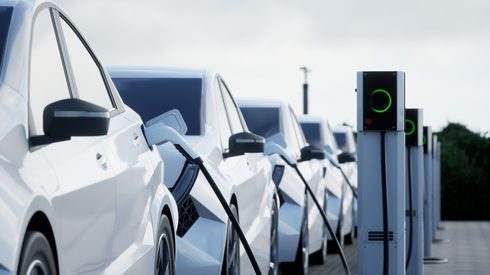Andrea Hotter, special correspondent as Fastmarkets, discusses the concept of ‘sustainable finance’ and what it actually means for investors. She also looks at mixed messaging over carbon neutral terminology and the impact that environmental, social and governmental (ESG) considerations and resource nationalism is having on the battery materials market. You can watch the full video interview or read the key takeaways below.
What does ‘sustainable finance’ mean in 2022?
Sustainable finance is the process of taking environmental, social and governance (ESG) considerations into account when you’re making investment decisions. The idea is that it leads to more long-term investments in green economic activities and projects. Banks, funds and private equity firms are raising the bar on capital allocation. The ‘greener’ a company, project or a technology is, the more likely it is to receive funding and on better fiscal terms. Companies that have immediate and credible strategies to cut carbon are being rewarded and those that don’t are losing out.
What is the challenge with having no globally accepted definition of ‘low carbon’?
There is a lot of attention focused on carbon emissions, with the result that high carbon assets do not attract capital. Ironically, there is still no globally accepted definition of low carbon and any measurement standards that do exist are poorly defined. Even when companies report emissions, they often do not include their entire supply chains. Some focus on scope one and scope two emissions, others focus on scope three.
There are different ways of counting emissions. Total carbon emissions, carbon intensity of emissions and carbon intensity per unit of financing. We are speaking in different ESG languages, so it becomes impossible to know if some if something is actually low carbon or net zero carbon.
There is also no international standard around sustainable finance. So, all this means that we need to create clear and consistent carbon accounting frameworks to prevent allegations of ‘green washing’ and we are not there yet.
How is resource nationalism impacting investment in battery materials?
Lithium resources are highly concentrated in the so called ‘lithium triangle’ of Argentina, Bolivia and Chile. That means any physical disruption or regulatory or geopolitical events in that region can have a large impact on the availability of minerals and internal prices. These three nations have talked about creating their own OPEC for lithium and each of them has seen a revival in resource nationalism in recent years.
For instance, Bolivia has seized zinc, lead and tin assets over the years and renationalized them back to state control. Chile, which traditionally has had a stable operating environment, has been much more challenging for investors of late because of plans to rewrite the constitution and change tax laws.
There have also been political calls in Chile to create a state-run lithium mining company. Argentina has said that the lithium resources in the country are at the heart of its new strategic map and Mexico, which also has a wealth of lithium resources has gone as far as banning private miners from developing lithium at all. They aren’t the only sources of lithium but they are going to play an oversize role in future supply. This isn’t new for Latin America or mining in general, but the traditional framework of resource nationalism is now wrapped up in the new package of energy transition.
Keep up to date with the latest news and insights in the lithium market by visiting our dedicated lithium page.





